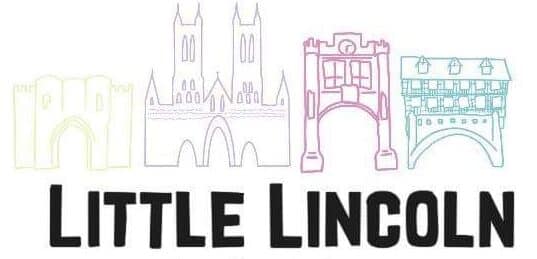Role-play is a powerful tool that can help in developing empathy through play. Through imaginative play, children learn how to understand and respond to different emotions, practice problem-solving and teamwork, and build positive relationships with others.
In this article, we explore the science behind role-play, offer practical tips for parents and educators, and share ideas for using role-play to teach empathy and cooperation.
What is role-play and how can it help in developing empathy through play?
Role-play is a type of imaginative play where children act out different roles or scenarios. It can be as simple as pretending to be animals or superheroes, or more complex like playing doctor or chef. By assuming different roles and perspectives, children learn how to understand and empathize with others.
Empathy is an important social skill that helps children develop positive relationships with others. When children role-play, they are able to practice putting themselves in someone else’s shoes and imagining how they would feel in a particular situation. This helps to build empathy and understanding.
The science behind role-play and how imaginative play can improve social skills
Research has shown that imaginative play can improve social skills in children. It helps children develop the ability to take on different perspectives and understand the emotions of others. This is important for building positive relationships and for navigating social situations.
Role-play also allows children to practice problem-solving and teamwork. When children engage in imaginative play together, they learn how to communicate effectively, negotiate, and compromise. This helps them develop the cooperation skills needed to work with others in real-life situations.
Tips and tricks for parents and educators to teach empathy through role-play
There are many ways that parents and educators can use role-play to teach empathy to children. One effective method is to encourage children to take on different roles and perspectives. This helps them understand how others feel in different situations and builds empathy.
Another method is to use storytelling and pretend play to explore different emotions. For example, parents can create scenarios where children have to help a friend who is feeling sad or upset. This helps children learn how to respond to different emotions and develop empathy.

How role-play can also be used to teach children cooperation
Role-play can also be used to teach children cooperation skills. Here are five practical ideas for using role-play to teach cooperation:
- Pretend to run a restaurant together: Children can take on different roles such as chef, waiter, and customer. They will need to work together to prepare food, serve customers, and clean up.
- Create a pretend construction site: Children can work together to build structures using blocks, sand, or other materials. They will need to communicate effectively and cooperate to complete the project.
- Play a game of pretend school: Children can take turns being the teacher and the student. They will need to cooperate and follow instructions to make the game work.
- Set up a pretend doctor’s office: Children can take on different roles such as doctor, nurse, and patient. They will need to work together to diagnose and treat illnesses.
- Play a game of pretend camping: Children can work together to set up tents, prepare food, and go on pretend hikes. They will need to cooperate to make the game work.
From superheroes to space explorers: how role-play can teach problem-solving and teamwork
Role-play can be a powerful tool for teaching children about emotions and helping them develop emotional intelligence. Through role-play, children can explore different emotions and practice responding to them in a safe and supportive environment.
One way to use role-play to teach emotional intelligence is to create scenarios that involve different emotions. For example, you could create a scenario where one child is feeling sad and another child is trying to cheer them up. The children can practice expressing and responding to these emotions in a way that feels natural and comfortable for them.
Another way to use role-play for emotional intelligence is to use it as a way to explore different perspectives. For example, you could create a scenario where one child is feeling angry and another child is feeling hurt. The children can take turns playing each role, allowing them to see the situation from different perspectives and develop empathy for others.
Role-play can also be a helpful tool for teaching children how to regulate their emotions. By practicing different strategies for calming down or coping with difficult emotions, children can develop the skills they need to manage their emotions in real-life situations.
Overall, role-play can be a fun and engaging way to help children understand and respond to different emotions. By creating scenarios that allow children to explore different perspectives and practice emotional regulation, we can help them develop the emotional intelligence they need to thrive in their personal and social lives.
Role-play helps teach our kids more about emotional intelligence
Role-play can be a powerful tool for teaching children about emotions and helping them develop emotional intelligence. Emotional intelligence involves being able to recognize and understand one’s own emotions, as well as the emotions of others, and respond to them in appropriate ways.
Through role-play, children can explore different emotions and practice responding to them in a safe and supportive environment. For example, a child can pretend to be feeling sad, and another child can practice comforting them and offering support. This kind of role-play allows children to experience different emotions and practice responding to them in a supportive and understanding way.
Role-play can also be helpful for teaching children how to regulate their emotions. By practicing different strategies for calming down or coping with difficult emotions, children can develop the skills they need to manage their emotions in real-life situations. For example, a child can pretend to be feeling angry, and another child can practice using calming techniques like deep breathing or taking a break.
Another benefit of role-play for emotional intelligence is that it can help children develop empathy. By taking on different roles and imagining how others might be feeling, children can develop a deeper understanding of others’ emotions and perspectives. This can help them become more compassionate and understanding in their real-life interactions with others.
Overall, role-play can be a fun and engaging way to help children understand and respond to different emotions. By creating scenarios that allow children to explore different perspectives, practice emotional regulation, and develop empathy, we can help them develop the emotional intelligence they need to thrive in their personal and social lives.
Interested in your child becoming involved in role play? Head on over to our booking page to get started. Or if you’re not too sure of the idea, check out the what to expect page. If you have any other questions, get in touch.


